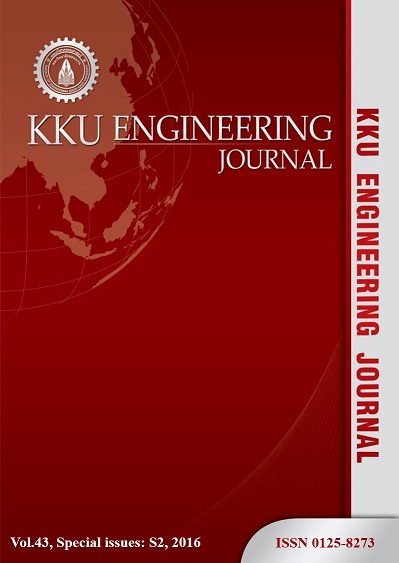Hybrid forecast models for PM-10 prediction: A case study of Chiang Mai city of Thailand during high season
Main Article Content
Abstract
In this study, the forecast models including to ARIMA, NNs, hybrid of ARIMA-NNs and hybrid of NNs-ARIMA model are employed to predict the PM-10 level during the high season in Chiang Mai, in the province of northern Thailand. The k-folds cross validation technique is used in the experimental design in order to prevent the over-fitting which is generally existed with strong impact on the forecast model. The historical PM-10 data are taken as the input of the forecast model. The statistics test and parameter designed experiments are used to optimize the linear models while the back-propagation (BP) learning algorithm is used to train the neural networks. The average of root mean squared error (RMSE) and mean absolute error (MAE) are used to indicate their performances. The results indicate that the hybrid NNs-ARIMA model is highly able to predict the PM-10 over the rest.
Article Details
This work is licensed under a Creative Commons Attribution-NonCommercial-NoDerivatives 4.0 International License.



